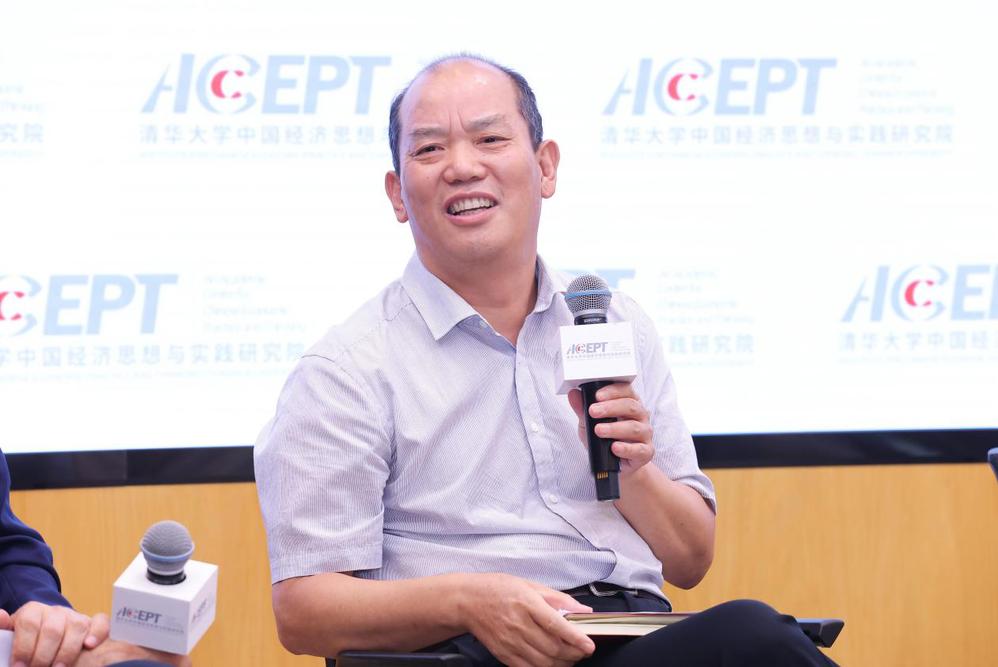Zhu Baoliang: Maintain robust fiscal policies and establish a clear direction for undertaking reforms
The following is a summary of Zhu Baoliang's comments during a roundtable discussion at the 49th Tsinghua University Forum on China and the World Economy held at Tsinghua University, Beijing, and broadcasted online on July 2, 2025. Zhu is former Chief Economist and Researcher of the State Information Center's Department of Economic Forecasting.
On July 2, 2025, the 49th Tsinghua University Forum of China and the World Economy, hosted by Tsinghua University's Academic Center for Chinese Economic Practice and Thinking (ACCEPT) in partnership with the university's School of Social Sciences, was broadcasted online under the theme of "China's 2025 Mid-Year Economic Update." Former Chief Economist and Researcher of the State Information Center's Department of Economic Forecasting, Zhu Baoliang, participated in a roundtable discussion at the forum alongside other distinguished guests where he outlined a number of promising policy interventions to support China's economy.

Zhu cautioned that despite China's economy having at present generally shown a trend towards stabilization, such encouraging signs are mainly being underpinned by ongoing policy support, with the momentum of endogenous growth remaining insufficient and the rebound in consumption largely remaining reliant on policies such as "trade-in" schemes. In terms of the real estate sector, following the introduction of the "three-year guaranteed timely delivery of presold homes" policy, the market began to show some signs of recovery, especially in first-tier cities where prices for newly-built housing units began bouncing back to some extent. However, the prices for pre-owned residential properties are still tracking downwards, which means that the market's overall trend has not yet been stabilized. He suggested focusing on the liquidation and revitalization of leftover non-residential properties, including by making use of Real Estate Investment Trusts (REITs) and other means to put idle and unused funds to work, in this way further promoting a recovering in the real estate market.
The persistent decline in prices that characterizes the current performance of China's economy is a reflection of weak domestic demand, languishing confidence, an ongoing corporate liquidity squeeze, and broken balance sheets, among other issues. As such, the current market may not be in a position to begin correcting itself without the intervention of more robust fiscal measures. When it comes to tracing some of the underlying reasons for the country's current economic state, moreover, Zhu mentioned that the uncertainties created as a result of the external environment, declining imports and exports, and escalating frictions between China and the United States continue to constitute risk factors.
On a theoretical level, Zhu expressed that it is necessary to re-examine the thinking behind macroeconomic theories, including in reference to declines in the marginal propensity to consume, diminishing investment efficiency, and balance sheet recessions, among other areas, introducing measures in accordance with the appropriate steps to address specific issues as they crop up. In addition, he stressed the need to maintain a robust fiscal policy while clearly clarifying the direction of reforms to avoid falling into a prolonged period of downturn like Japan.




